Eczema, medically known as atopic dermatitis, is a chronic inflammatory skin condition that causes dry, itchy, red, and irritated patches of skin. It often begins in childhood and is linked to a genetic tendency toward allergies, asthma, or hay fever. Environmental triggers such as cold weather, harsh soaps, allergens, or stress can cause flare-ups.
While it cannot be completely prevented, eczema can be managed by moisturizing regularly, avoiding known irritants, and using gentle skin care products. A dermatologist can provide a personalized treatment plan that may include prescription topical steroids or non-steroidal creams, antihistamines, light therapy, or newer biologic medications to control inflammation and reduce flare-ups.
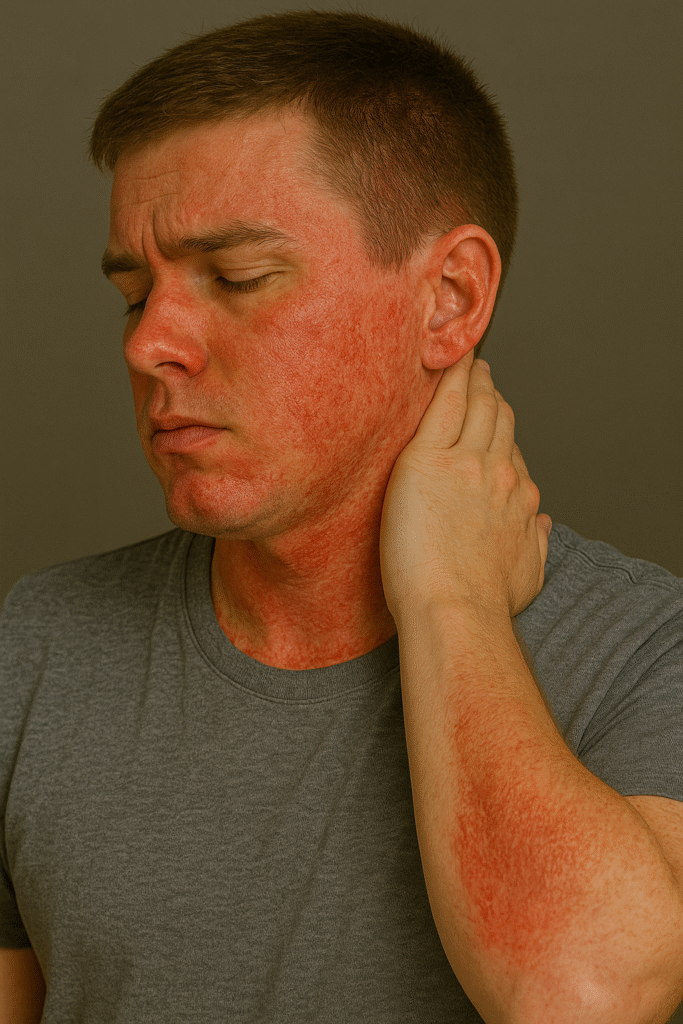
Contact dermatitis is a type of skin inflammation that occurs when the skin comes into direct contact with an irritating substance or allergen, leading to redness, itching, swelling, or blistering.
It can be caused by everyday items such as soaps, cosmetics, plants like poison ivy, or metals like nickel. Prevention involves identifying and avoiding the specific triggers, using protective clothing or gloves, and choosing fragrance-free or hypoallergenic products.
A dermatologist can help diagnose the cause—sometimes with patch testing—and recommend treatment, which may include topical corticosteroids, soothing creams, and guidance on how to protect the skin and prevent future reactions.
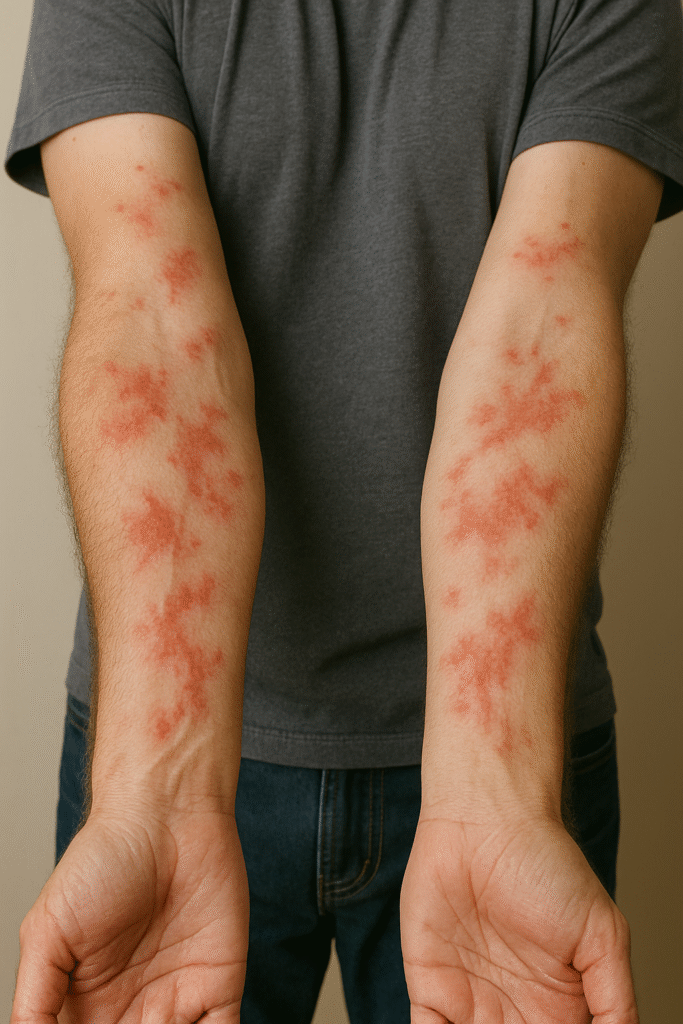
Diaper Rash is a common form of skin irritation that affects infants and toddlers in the diaper area, causing redness, inflammation, and sometimes small bumps or peeling skin. It can develop from prolonged exposure to moisture, friction from the diaper, or contact with urine and stool. In some cases, a secondary yeast or bacterial infection can worsen the rash.
Diaper rash can often be prevented by changing diapers frequently, using gentle wipes, allowing the skin to air dry, and applying a protective barrier cream.
If the rash is persistent or severe, a dermatologist can provide specialized care, which may include prescription-strength creams or antifungal or antibacterial treatments to promote healing and protect delicate skin.
self-schedule your appointment now on our website
Hives, also known as urticaria, are raised, red or skin-colored welts on the skin that are often itchy and can appear suddenly anywhere on the body. They may last for a few hours to several days and can vary in size and shape. Hives are typically caused by an allergic reaction to foods, medications, insect stings, or environmental triggers, but they can also result from stress, infections, or underlying health conditions.
While avoiding known triggers can help prevent outbreaks, the cause is not always identifiable.
At our dermatology clinic, we offer expert evaluation and treatment, including antihistamines, anti-inflammatory medications, and in some cases, advanced therapies for chronic hives. Our goal is to relieve symptoms and help patients manage flare-ups effectively.

Lichen Planus is an inflammatory skin condition that presents as flat-topped, purplish bumps that may be itchy and commonly appear on the wrists, ankles, lower back, or inside the mouth.
It is believed to be an autoimmune reaction, though the exact cause is unknown, and it may be triggered by certain medications, infections like hepatitis C, or other immune-related conditions. Lichen planus is not contagious, and while it cannot always be prevented, avoiding known triggers and managing overall health can help reduce the risk of flare-ups.
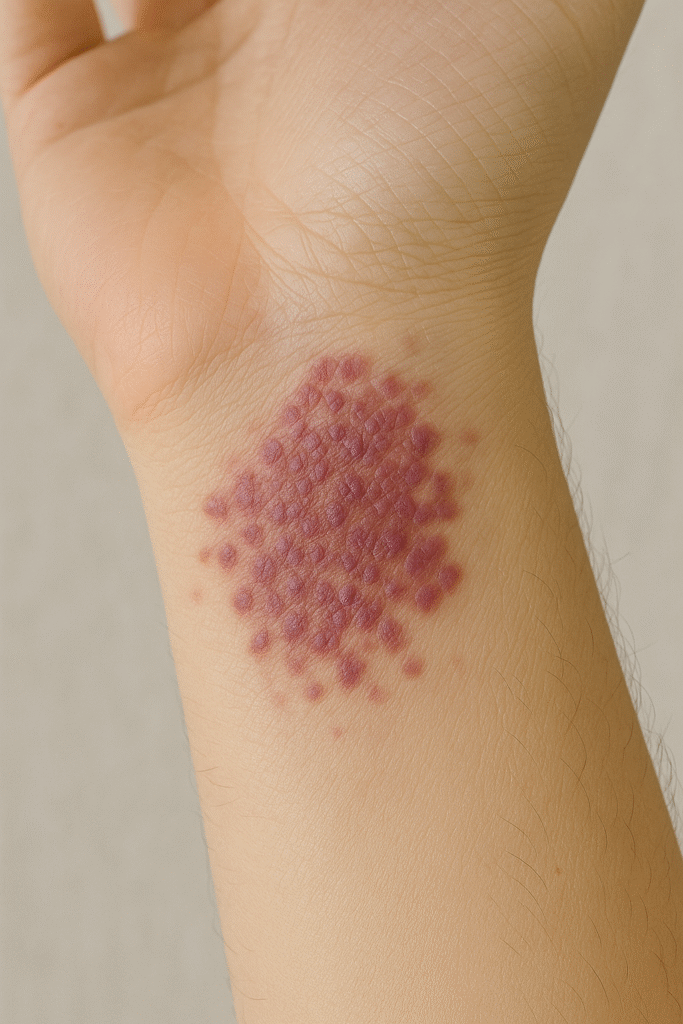
At our dermatology clinic, we diagnose lichen planus through clinical evaluation and, if necessary, a skin biopsy. Treatment options may include topical or oral corticosteroids, antihistamines, immune-modulating medications, or light therapy to relieve symptoms and control inflammation.
Lupus is a chronic autoimmune disease that can affect the skin, joints, and internal organs. When it involves the skin—referred to as cutaneous lupus erythematosus—it can cause red, scaly rashes, often in sun-exposed areas like the face, neck, and arms. The exact cause of lupus is not fully understood, but it is believed to result from a combination of genetic, hormonal, and environmental factors. It is more common in women, particularly those of African American, Hispanic, or Asian descent.
While lupus cannot be prevented, flare-ups can often be minimized by avoiding sun exposure, managing stress, and maintaining overall health.
At our dermatology clinic, we specialize in diagnosing and managing skin manifestations of lupus with treatments such as topical steroids, immune-modulating creams, in rare cases oral medications, and strict sun protection strategies to reduce inflammation and protect the skin.
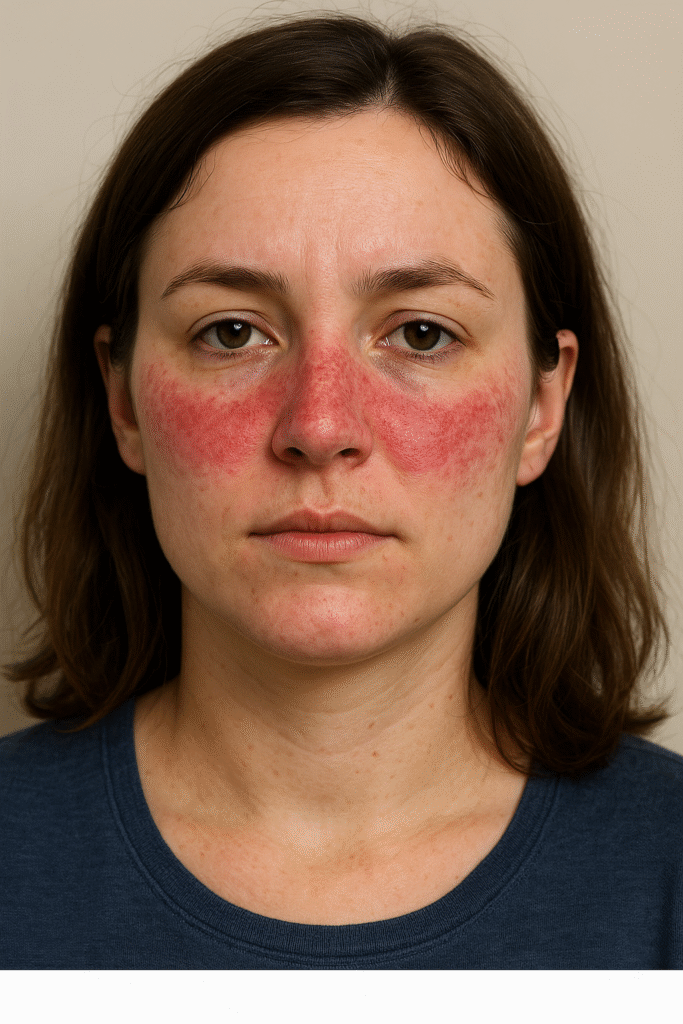
self-schedule your appointment now on our website
Poison Ivy Dermatitis is an allergic skin reaction that occurs after contact with the oily resin (urushiol) found in poison ivy, poison oak, or poison sumac plants. It typically causes an itchy, red rash with blisters or streaky patches that appear within hours to days after exposure. The reaction is not contagious but can spread if the oil remains on the skin, clothing, or surfaces.
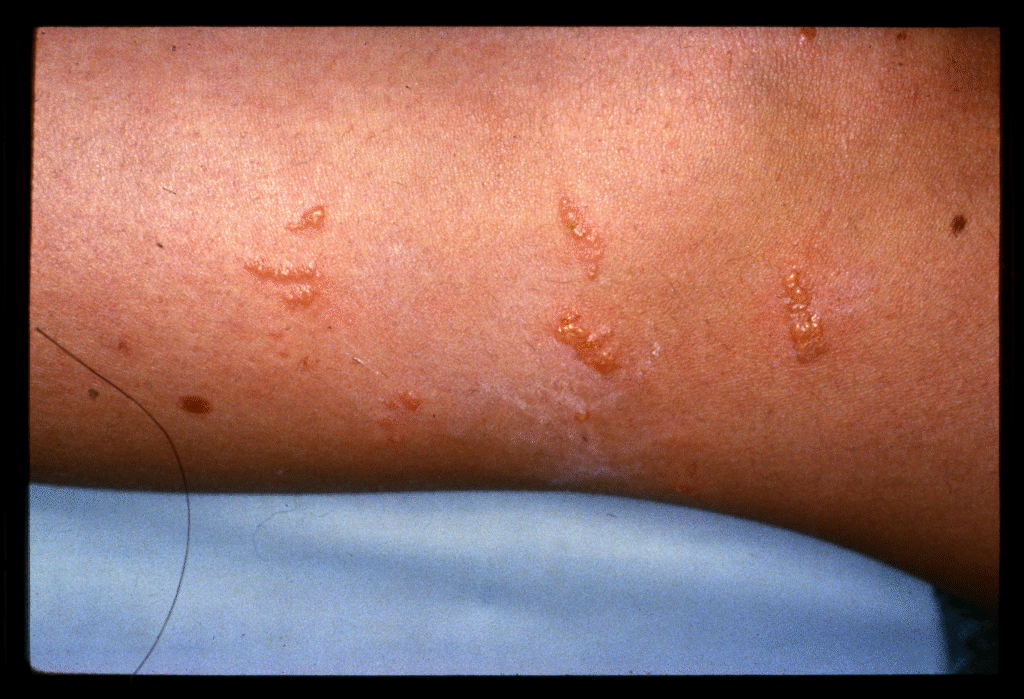
Prevention includes learning to identify and avoid these plants, wearing protective clothing outdoors, and washing skin and items that may have come into contact with the resin.
At our dermatology clinic, we treat poison ivy dermatitis with soothing topical or oral corticosteroids to reduce inflammation, antihistamines to relieve itching, and expert advice on managing symptoms and preventing future outbreaks.
Psoriasis is a chronic autoimmune skin condition that causes the rapid buildup of skin cells, leading to thick, red, scaly patches that commonly appear on the scalp, elbows, knees, and lower back. It is not contagious and is believed to result from a combination of genetic and environmental factors, including stress, infections, skin injuries, or certain medications.
While psoriasis cannot be completely prevented, avoiding known triggers and maintaining a healthy lifestyle can help reduce flare-ups.
At our dermatology clinic, we offer personalized treatment plans that may include topical medications, referral for home or in-office phototherapy (light treatment), in rare cases oral medications, or referral for advanced biologic therapies that target the underlying immune response. Our goal is to relieve symptoms, improve skin health, and enhance our patients’ quality of life.

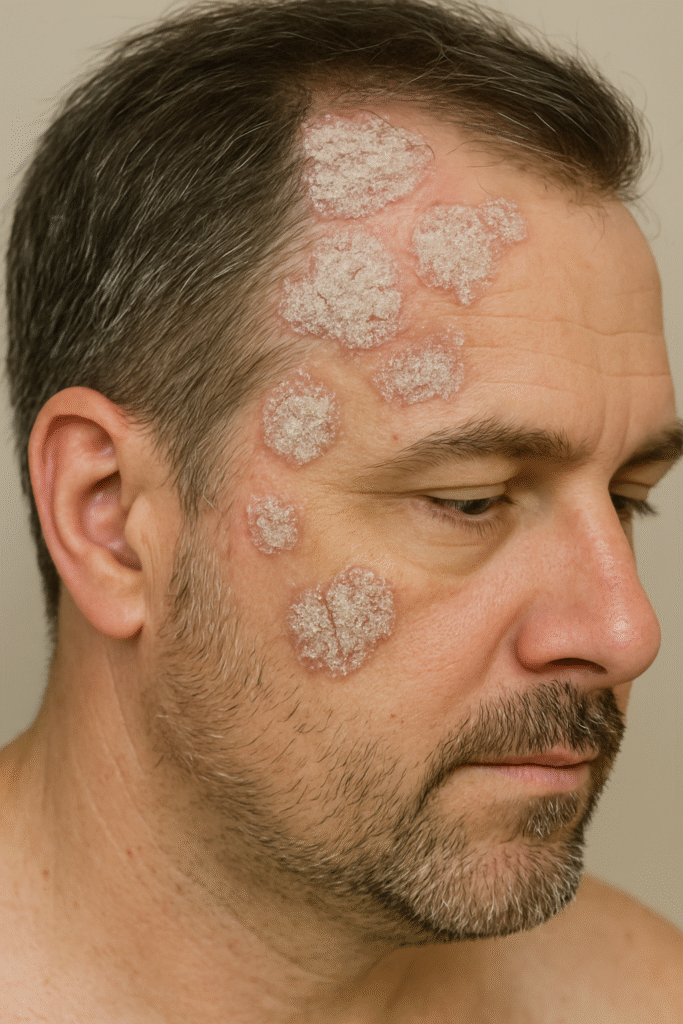
Scalp Psoriasis is a chronic skin condition that causes thick, scaly patches on the scalp, often accompanied by itching, flaking, and redness. It occurs when the immune system triggers an overproduction of skin cells, leading to a buildup of scales and inflammation. Scalp psoriasis can affect anyone but is more common in individuals with a family history of psoriasis.
While it cannot be prevented, flare-ups may be reduced by managing stress, avoiding harsh hair products, and protecting the scalp from injury or irritation.
At our dermatology clinic, we provide expert care with customized treatment options including medicated shampoos, topical steroids, vitamin D analogs, light therapy, and counseling on advanced systemic or biologic medications for more severe cases and referrals to specialized centers that provide these medications. Our goal is to relieve symptoms, improve scalp health, and enhance your quality of life.